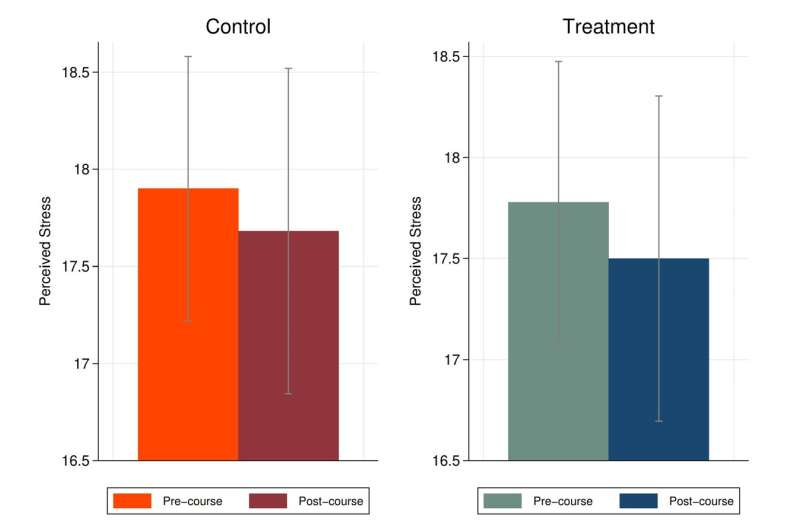This article has been reviewed according to Science X's editorial process and policies. Editors have highlighted the following attributes while ensuring the content's credibility:
fact-checked
peer-reviewed publication
trusted source
proofread
Mindful meditation can reduce avoidance of negative information, improve decision-making, suggests study

People who meditate every day are less likely to avoid negative information. This is a finding in a new study by a research team including researchers from ETH Zurich.
Smart decision makers gather all the pertinent information, and weigh the pros and cons dispassionately. This also includes gathering information that could prove unsettling or unpleasant. At least that's the theory.
However, the reality is often quite different. Due to what experts call cognitive bias, people tend to ignore potentially negative information—even when such information is available to them. For example, they don't want to find out whether an investment is no longer worthwhile, a medical test has confirmed an illness, or a friend has betrayed their trust. The reason is that even just thinking about negative information triggers fear and worry.
A recent study by Elliott Ash, Professor of Law, Economics, and Data Science at ETH Zurich, shows that people can reduce this tendency towards information avoidance through regular mindfulness meditation.
Coping better with negative emotions
The researchers define the practice of mindfulness meditation as sitting still with eyes closed, observing—but not responding to—breathing, physical sensations, thoughts, and emotions. Numerous scientific studies have shown that practicing meditation on a regular basis has a positive effect on both body and mind. Meditating for just 15 minutes a day helps people relieve stress, increases their ability to concentrate, cuts their risk of depression, and enhances their productivity.
Like in other studies, Ash and his co-authors were able to show that daily meditation boosts people's ability to contend with negative emotions. "The study participants who meditated every day for two weeks were better equipped to simply observe their negative emotions and accept them calmly," Ash says. This positive development was not observed in members of the control group.
Wanting to know what could go wrong
The study's authors conclude that mindfulness meditation makes people more resilient to uncomfortable emotions, which in turn allows them to process negative information more objectively. "Someone who copes well with negative emotions will also want to know what could go wrong as a result of a particular decision," Ash says.
In other words, meditation training could help people make better decisions. Since they are more likely to also consult information to which they might react negatively, they are more comprehensively informed.
Meditating every day for two weeks
For their study, the researchers recruited 261 participants through an online platform and randomly divided them into two groups. One group meditated every day for 15 minutes, while the other spent that time listening to relaxing music.
Before and after the experiment, the study participants had to answer a set of standardized questions to ascertain how well they dealt with negative information and how strongly they responded to emotions. Participants were asked, for example, if they wanted to receive potentially negative information about their health, financial investments, or personal relationships.
The work is published in the journal Economics Letters.
More information: Elliott Ash et al, Mindfulness reduces information avoidance, Economics Letters (2023). DOI: 10.1016/j.econlet.2023.110997





















